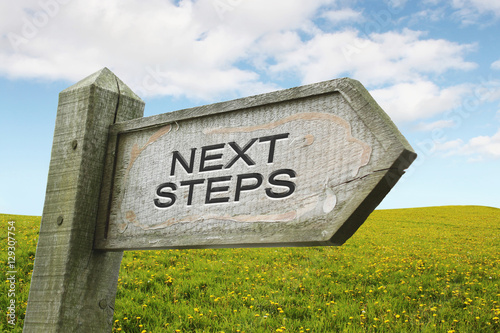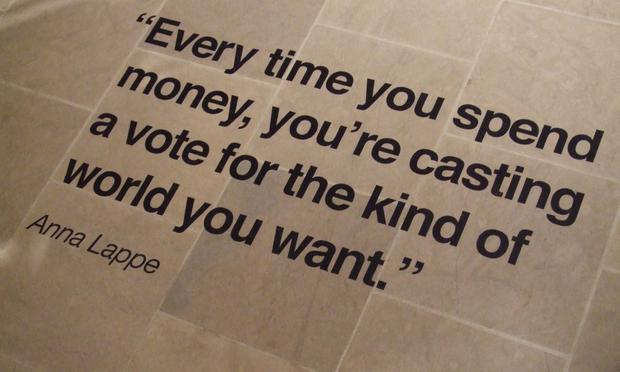 The 'first steps' mentioned last week (prayer, relationships, education), are sometimes where we want
The 'first steps' mentioned last week (prayer, relationships, education), are sometimes where we wantto end. We feel good. We feel more aware. And we can we can even feel like we are becoming reconciled with each other. But these steps are just the beginning toward true redemption of our racial history and relationships.
Next Steps: Changing Behaviors
Prayer, relationship, and education are the critical foundations for what comes next. It's from there that we begin to change our behaviors, both as individuals and as groups. There are many arenas in which to do this. Here, I simply highlight a few ideas. Feel free to share your own in the comments section below.
- Empowering leaders
- Take active steps to promote and empower young leaders of color, strengthening them and giving them the support they need to lead effectively. Introduce them to your networks, systems of support and platforms (see this week's #SeaofWhiteness and #SpeakersofColor for one example of the issues faces). Mentor them through their professional development and be vigilant against the subtle biases that may hinder them. Promote institutional equity in the church when it comes to seminarians, pastors, and denominational leaders.
- Showing up
- At the guidance and invitation of leaders of color, show up when called upon. Build a culture of justice within your congregation, such that when national racial tragedies occur there is precedent for your church to show up in solidarity. Attend marches and other public witnesses for immigrant rights, voters rights, living wages, budget priorities, etc—wherever leaders of color point.
- Spending Responsibly
- Use the power of your money wisely. Fast from national chains and corporations, instead patronizing small local business, especially those owned by people of color. Give time and money to university departments and organizations that support students, histories, cultures of otherwise underrepresented groups. Support organizations like the Kirwan Institute, Race Forward, and others that are committed to research and activism toward racial justice.
- Examine your media
- Media plays a powerful role in shaping our we perceive and interact with the world. Change your behaviors to seek out magazines, movies, and TV shows that feature and affirm a range of beauty standards and cultures. Be sure you get your daily news from multiple sources, particularly those run by producers from underrepresented backgrounds. Fast from sporting events and broadcasts that feature racist or appropriative mascots. And ensure that the art in your church, on your church website, in your church bulletin and in power points also reflect the inclusive body of Christ, rather than perpetuating harmful cultural defaults.

Big Steps: Changing Society
As we change our behaviors as individuals, but must also work to change our systems and institutions as a whole. This takes time, dedication, and a willingness to step out against the status quo. The task is great, but some of these steps can help make a dent.
- Advocate
- At the direction and invitation of those affected by injustices, directly advocate for changes in laws, systems, and policies. Enlist your church and personal networks in advocacy work around issues of racial disparity. Learn about local policies around harsh school discipline, police weaponry, or prison sentencing, and get involved with the work already happening to move such legislation. Examine your personal spheres of influence to see where your voice may make a difference.
- Sponsor
- Invest financial and social capital to significantly move the needle for individuals affected by systems of inequity. Support young students or professionals of color in their career development goals (CEUs, speaking engagements, introductions to book publishers). Help them attend conferences and training events (eg. support the WoC Retreat at the CCDA conference this week). Consider becoming a trained foster parent or guardian ad litem to help older children through difficult transitions. Talk to your congregation about launching a Freedom School in your area. Steps like these require significant investments of time and money, but have the potential to make significant difference for the individuals affected.
- Take Risks
- To make meaningful change we must be willing to put our reputation, money, employment, and leadership opportunities at risk. In particular, those in positions of privilege must set aside opportunities they’ve been offered that do not reflect God’s vision for the inclusive body of Christ. They must speak up when it's 'meddlesome,' divest when it's 'unwise,' and take a stand when it's 'inappropriate' by the established standards of doing so. It takes getting risky with what we'd like to take for granted.
This week, no matter where you are in the journey, pick one new thing that you can commit to, and do it. Write it down. Share it is the comments section. Get plugged into the good work already happening, and take that next step for justice and reconciliation in this world.
No comments:
Post a Comment